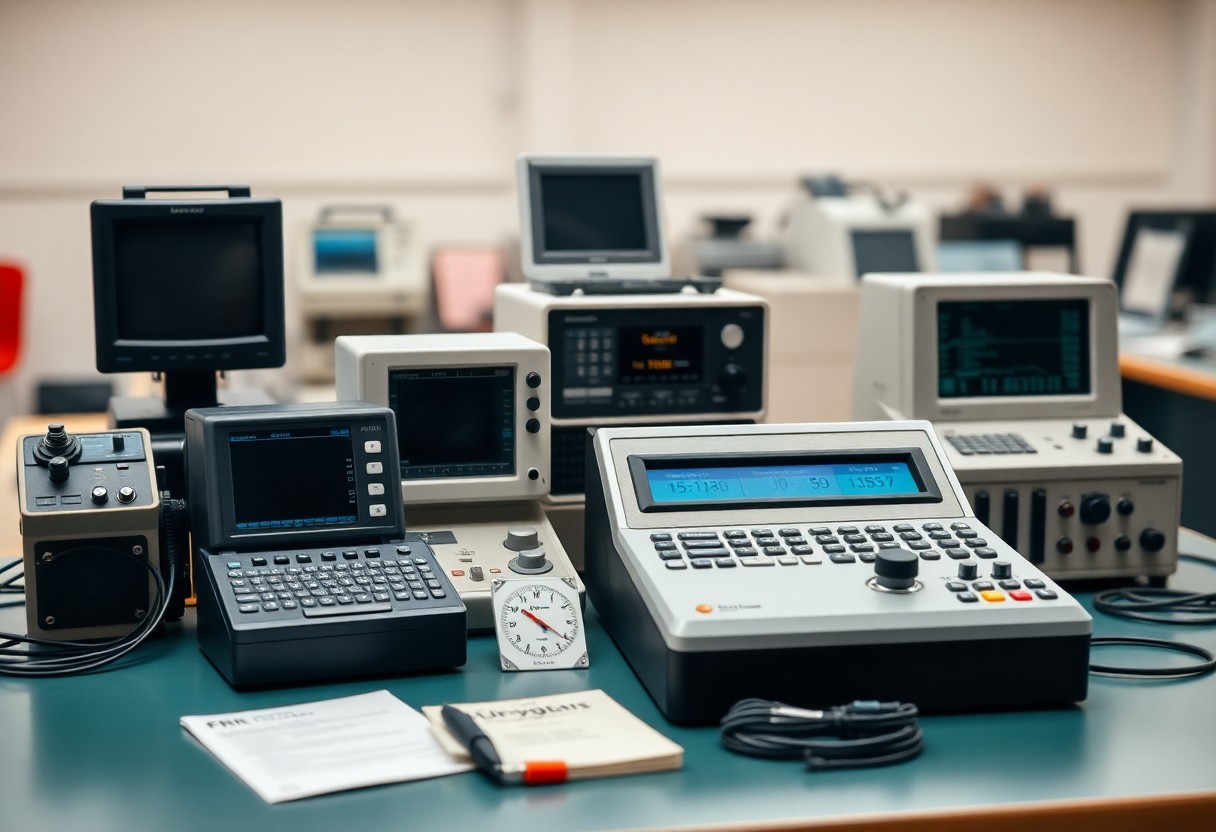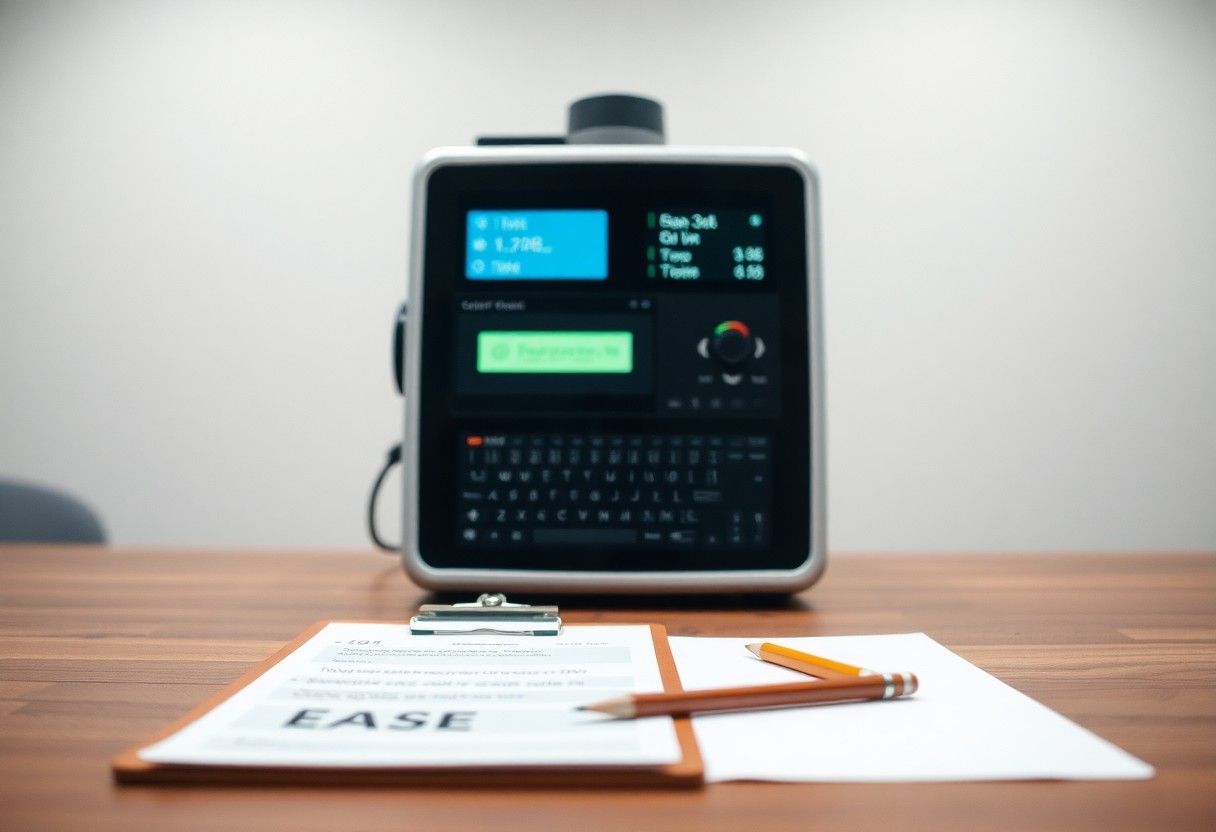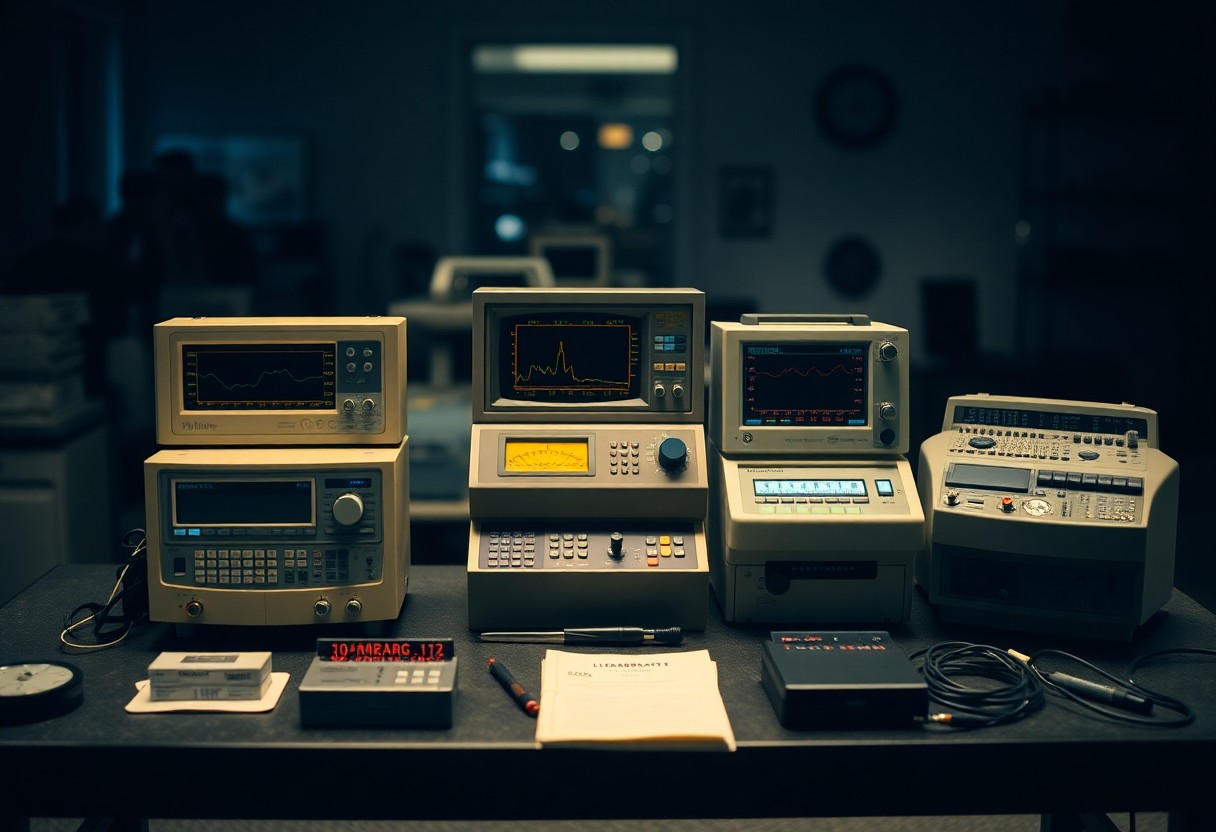
Many people find themselves overwhelmed when selecting the right polygraph for their needs. To ensure you make an informed decision, it’s necessary to consider factors such as accuracy, ease of use, and cost. Understanding the different types of polygraphs available and their specific applications will help you determine which one is suited to your situation. By taking the time to research and evaluate your options, you can choose a polygraph that not only meets your requirements but also enhances the reliability and validity of your results.
Key Takeaways:
- Determine Your Purpose: Clearly outline the specific reasons for needing a polygraph, as different applications may require different types of equipment.
- Research Features: Consider the vital features of polygraphs that align with your needs, such as data analysis software, portability, and sensitivity.
- Evaluate Credibility: Look for reviews and testimonials about the device and ensure it meets industry standards for accuracy and reliability.
Understanding Different Types of Polygraphs
To effectively choose the right polygraph for your needs, you must first understand the different types available. Each polygraph system offers unique advantages and functions that can cater to a variety of applications.
| Type | Description |
|---|---|
| Traditional Polygraph Systems | Manual setups with analog measurement tools. |
| Computerized Polygraph Systems | Digital systems that utilize software for analysis. |
| Portable Polygraphs | Lightweight options for field use. |
| Voice Stress Analyzers | Assess stress levels through vocal changes. |
| Laser-based Systems | Advanced technology that analyzes physiological responses. |
Knowing the various types of polygraphs can help you make an informed choice that aligns with your specific needs.
Traditional Polygraph Systems
Polygraph systems are often used in law enforcement and private investigations. These systems utilize mechanical components to measure physiological responses, like heart rate and blood pressure, during questioning. While they have been the industry standard for decades, they require skilled operators to interpret the results accurately.
Computerized Polygraph Systems
For a more modern approach, computerized polygraph systems have gained popularity. These systems not only offer digitized data collection but also provide advanced analytical features for more accurate results.
Hence, computerized systems can significantly enhance your polygraph experience. Their automated analysis reduces the chances of human error, while allowing you to easily store and retrieve data. Furthermore, you can benefit from real-time feedback, and some systems even allow for remote monitoring. This can lead to a more efficient evaluation process, ultimately making it a valuable tool in any examination. Understanding these advantages can guide you to make the right decision for your specific requirements.
Key Features to Consider
Assuming you are in the market for a polygraph, it’s vital to evaluate the following key features:
- Sensitivity to detect subtle physiological changes
- Accuracy for reliable results
- Portability for easy transport
- User-friendly interface for straightforward operation
- Calibration for consistent performance
- Battery life for prolonged usage
- Data storage capacity for retaining extensive records
The right selection will greatly enhance your polygraph testing experience.
Sensitivity and Accuracy
Beside choosing the right model, focus on the polygraph’s sensitivity and accuracy. A polygraph that is highly sensitive will pick up even the slightest emotional fluctuations, while high accuracy ensures that the results are trustworthy. This combination is vital for effective lie detection and investigation.
Data Analysis Software
The software that accompanies your polygraph is as vital as the device itself. Opt for a polygraph equipped with advanced data analysis software that provides clear visualizations and comprehensive reports. This not only aids in the interpretation of results but also in presenting findings to others.
Hence, investing in top-notch data analysis software can significantly improve the effectiveness of your polygraph results. You should look for features like real-time data visualization, intuitive interfaces, and customizable report generation. The best software also allows for the easy export of data, enhancing collaboration with other professionals. Moreover, consider integration with other investigative tools you may use, ensuring a seamless workflow. The right software will enhance your overall experience and credibility in your findings.
Evaluating Manufacturer Reputation
For selecting the right polygraph, it’s important to assess the manufacturer’s reputation in the industry. A respected manufacturer often reflects quality and reliability in their products. Investigate the history of the company, including how long they’ve been in business and their standing in the polygraph community. Trusted brands usually offer consistent support and maintenance, which can significantly impact your overall experience and satisfaction.
Industry Experience
Beside evaluating the brand’s recognition, you should look into their industry experience. A manufacturer with a rich history in polygraph production is likely to provide superior technology and features that enhance accuracy and efficiency in testing.
Customer Reviews and Testimonials
Beside industry credentials, it’s important to investigate customer reviews and testimonials. Evaluating feedback from users who have already purchased and utilized the polygraphs can offer you invaluable insights into the product’s performance and the manufacturer’s reliability.
Another effective way to gauge a manufacturer’s reputation is through customer reviews and testimonials. Check various sources, such as online forums and review platforms, where users share their experiences. Look for consistent themes regarding product accuracy, customer support, and overall satisfaction. Pay attention to any negative feedback related to product reliability or issues with after-sale service, as these can be warning signs about potential problems you might encounter with your polygraph.

Budgeting for Your Polygraph Purchase
Not adequately budgeted for your polygraph purchase can result in unforeseen expenses that derail your plans. It’s vital to have a clear understanding of both the A Complete Guide to Choosing Professional Polygraph … and the financial commitment required. This involves not just the upfront costs but also ongoing expenses that might arise as you maintain this valuable tool.
Initial Costs
To effectively plan your budget, start by identifying the initial costs associated with purchasing a polygraph. This includes the price of the machine itself, any necessary software, and initial training or certification requirements you may need to operate it. By considering these factors, you can develop a realistic budget that aligns with your financial capabilities.
Ongoing Maintenance Expenses
After acquiring your polygraph, you must consider ongoing maintenance expenses to keep it in optimal working condition. This includes periodic calibration, software updates, and potential repairs, which can accumulate over time.
Further, a well-maintained polygraph can enhance your credibility and the reliability of your results. Neglecting maintenance might lead to false readings or device malfunctions, damaging your reputation. Regular servicing ensures your machine operates effectively, helping you avoid costly repairs later. Allocating a budget for ongoing expenses will ultimately support your operational needs and maintain high performance in your polygraph assessments.
Training and Support Options
All individuals and organizations looking to implement polygraph testing should prioritize training and support. It’s important to ensure that you are equipped with the right skills to operate the polygraph effectively. For further insights, consult The Essential Guide for Choosing the Right Lie Detector Test … which offers valuable resources.
User Training
Across various providers, comprehensive user training programs are typically offered to help you master the polygraph’s functionality and interpret results accurately. Understanding these aspects is vital for effective test administration.
Technical Support Availability
Around the clock technical support is a fundamental factor to consider when selecting your polygraph system. Knowing that expert help is available ensures you can address any issues that may arise without compromising the integrity of your testing process.
For instance, having attentive technical support can significantly enhance your operational experience, enabling you to handle unexpected situations efficiently. In case of equipment malfunction or inquiries, timely assistance can prevent delays and issues that could lead to inaccurate results or misinterpretations. Selecting a provider with a robust support system ensures you are never left in a difficult situation while utilizing your polygraph.

Compliance and Legal Considerations
After you select a polygraph service, you must consider compliance and legal implications. Ensure that the service provider adheres to relevant standards and regulations. Familiarizing yourself with legal guidelines will help protect your interests. You can learn more about this in our guide on How to Find the Best Lie Detector Test Service.
Regulatory Standards
Above all, you should verify that the polygraph examiner complies with industry regulatory standards. This typically includes licensing, accreditation, and adherence to established ethical guidelines. Compliance not only enhances the reliability of the test results but also safeguards you against potential legal challenges.
Legal Implications of Polygraph Results
Between the outcomes of a polygraph test and your actions, you should be aware of the legal implications involved. The results can impact employment decisions, criminal cases, and personal relationships. Ensure that you consult with a legal expert to navigate these complexities effectively.
This is necessary as polygraph results do not hold the same weight in every jurisdiction. Some courts may accept them as *admissible evidence*, while others may not. Be aware that a polygraph can *potentially harm your credibility* if the results are unfavorably interpreted. It is also vital to note that a false positive can lead to *unjust accusations*, while a false negative might imply *innocence when guilt exists*. Thus, understanding these elements not only helps you in your decision-making process but also *shield you from legal ramifications* down the line.
Final Words
Considering all points, selecting the right polygraph requires careful evaluation of your specific needs, the qualifications of the examiner, and the technology used. By understanding the purpose of the test and exploring various options available, you can make an informed decision that best suits your situation. Always prioritize quality and experience to ensure accurate and reliable results, ultimately leading to greater trust in the outcomes for you and all involved parties.
FAQ
Q: What should I consider when selecting a polygraph machine for my needs?
A: When choosing a polygraph machine, you should evaluate several key factors including the accuracy of the instrument, ease of use, features offered (such as the number of channels and types of sensors), and the manufacturer’s support and warranty options. Additionally, consider the type of tests you plan to conduct, whether they be for employment screening, criminal investigations, or other purposes, as this may influence the functional requirements of the equipment.
Q: Are there different types of polygraphs, and how do I decide which one is best for me?
A: Yes, there are various types of polygraphs, including digital and analog models, as well as those designed for specific applications like criminal testing or pre-employment assessments. To determine which type is best for you, analyze your specific requirements, such as the precision needed, the nature of the examinations, and your budget. It’s often beneficial to consult with professionals in the field or seek demonstrations before making a decision.
Q: What qualifications should I look for in a vendor when purchasing a polygraph?
A: When identifying a vendor for a polygraph machine, look for one with a strong reputation in the industry, verified customer reviews, and a history of providing ongoing support. Ensure that the vendor offers comprehensive training for users, as operating a polygraph accurately requires proper understanding of the equipment. Additionally, consider whether they provide a solid warranty and maintenance options, as these factors contribute to the long-term usability and reliability of the machine.
